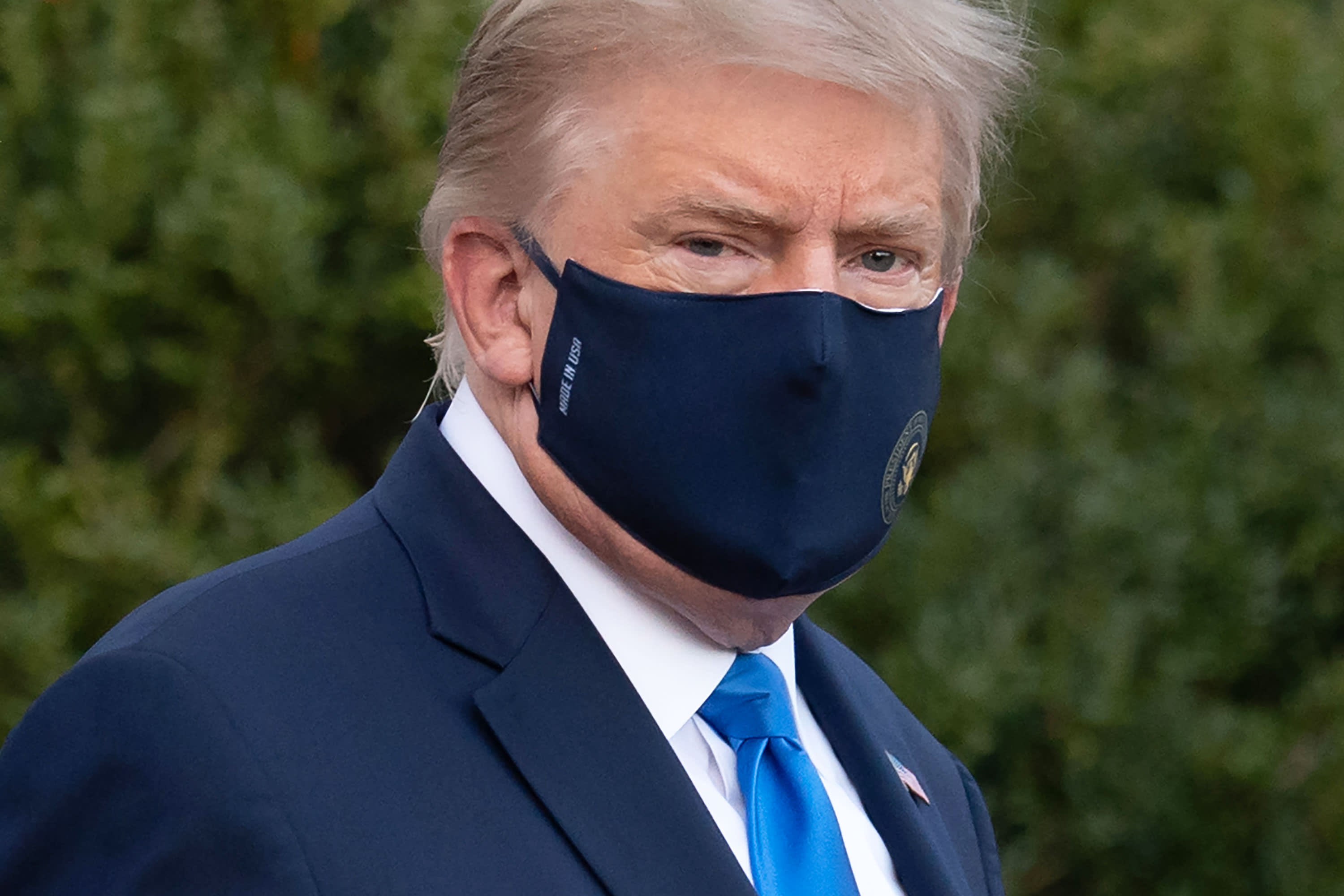The White House on Friday took a new coronavirus stimulus offer to Democrats, believed to cost $1.8 trillion, as the sides work to strike a deal before the 2020 election.
The plan would mark an increase from the $1.6 trillion the Trump administration previously proposed. House Democrats passed a $2.2 trillion bill earlier this month, and the sides have struggled to find a consensus in between those figures.
House Speaker Nancy Pelosi and Treasury Secretary Steven Mnuchin spoke for more than 30 minutes Friday afternoon, the California Democrat’s spokesman, Drew Hammill, said. Mnuchin offered a proposal “that attempted to address some of the concerns Democrats have,” he added.
“Of special concern, is the absence of an agreement on a strategic plan to crush the virus. For this and other provisions, we are still awaiting language from the Administration as negotiations on the overall funding amount continue,” Hammill said in a tweeted statement.
In a tweet before the meeting, Trump urged negotiators to “Go Big!” Trump later added more confusion to a chaotic week of discussions over aid.
“I would like to see a bigger stimulus package frankly than either the Democrats or Republicans are offering,” he told radio host Rush Limbaugh, hours after apparently signing off on the offer that costs $400 billion less than the Democrats’ plan.
Congress still faces several hurdles to crafting pandemic relief legislation and passing it. Even if the White House and Democrats can reach an accord on how much money to inject into a reeling health-care system and economy, they have to craft a bill that can get through the Republican-held Senate.
Earlier Friday, Senate Majority Leader Mitch McConnell said another stimulus package is “unlikely in the next three weeks.” He has focused on confirming Supreme Court nominee Amy Coney Barrett before the election, and the Senate has set a confirmation hearing for Monday.
To find a deal, Republicans and Democrats would have to quickly resolve several issues that have seemed intractable throughout months of fruitless talks. Pelosi has insisted on at least $436 billion in relief for cash-crunched state and local governments, while Trump has resisted sending them more than the $150 billion they received earlier this year.
Democrats want to reinstate the enhanced federal unemployment insurance at $600 per week through January. Mnuchin last offered a supplemental benefit of $400 per week.
Other areas of dispute include tax credits and food aid.
After Pelosi and Mnuchin renewed talks toward a deal early in the week, Trump abruptly told his administration to back out of discussions. After the stock market took a hit in response to the president pulling out of negotiations, Trump reversed course and urged Congress to pass direct payments, small business loans and aid for airlines to cover payroll.
Congress has failed to send new relief money in months as the U.S. health-care system buckles under a rampaging outbreak. The country reported more than 56,000 new infections Thursday, the highest single-day mark in nearly two months.
As millions of Americans remain unemployed, lifelines to sustain them through economic shutdowns earlier this year have expired in recent months. The supplemental unemployment insurance and a federal moratorium on evictions ended, as did the window to apply for Paycheck Protection Program small business loans. Trump signed executive orders that temporarily sent additional jobless benefits to some Americans and extended student loan assistance.
U.S. jobless claims remain stubbornly high as hiring starts to slow. Airlines and other major U.S. companies have moved toward furloughing or laying off tens of thousands of workers.
This week, Federal Reserve Chair Jerome Powell urged Congress to pass more fiscal stimulus, saying that failing to do so could “lead to a weak recovery, creating unnecessary hardship for households and businesses.” He said Congress had a limited risk of “overdoing” relief.
— CNBC’s Ylan Mui contributed to this report.
— Disclosure: Larry Kudlow is a former CNBC contributor.
